Courtesans and Opium
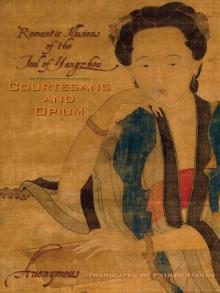

Author: AnonYMous
Category: Nonfiction
Published: 2009
Series:
View: 526
Read OnlineIn his preface, the anonymous author of Courtesans and Opium describes his book as an act of penance for thirty years spent patronizing the brothels of Yangzhou. Written in the 1840s, his story is filled with vice and dark consequence, portraying the hazards of the city's seedy underbelly and warning others against the example of the Fool.Chinese literature's first true "city novel," Courtesans and Opium recounts the illustrious career of a debauched soul enveloped by enthralling pursuits and romantic illusions. While socially acceptable marriages were arranged and often loveless, brothels offered men accomplished courtesans who served as both enchanting companions and sensual lovers. These professional sirens dressed in the latest styles and dripped with gold, silver, and jewels. From an early age, they were taught to excel at various arts and graces, which transformed the brothel into a kind of club for men to meet, exchange gossip, and smoke opium at...
In his preface, the anonymous author of Courtesans and Opium describes his book as an act of penance for thirty years spent patronizing the brothels of Yangzhou. Written in the 1840s, his story is filled with vice and dark consequence, portraying the hazards of the city's seedy underbelly and warning others against the example of the Fool. Chinese literature's first true "city novel," Courtesans and Opium recounts the illustrious career of a debauched soul enveloped by enthralling pursuits and romantic illusions. While socially acceptable marriages were arranged and often loveless, brothels offered men accomplished courtesans who served as both enchanting companions and sensual lovers. These professional sirens dressed in the latest styles and dripped with gold, silver, and jewels. From an early age, they were taught to excel at various arts and graces, which transformed the brothel into a kind of club for men to meet, exchange gossip, and smoke opium at their leisure. The Fool's fable follows five sworn brothers and their respective relationships with Yangzhou courtesans, revealing in acute detail the lurid materialism of this dangerous world—its violence and corruption as well as its seductive but illusory promise. Never before translated into English, Courtesans and Opium offers a brilliant window into the decadence of nineteenth-century China.
Patrick Hanan (1927–2014) was Victor S. Thomas Professor of Chinese Literature at Harvard University. He was one of the foremost translators of Chinese fiction from the fourteenth to the twentieth century. His books include Chinese Fiction of the Nineteenth and Early Twentieth Centuries, which contains a study of this novel. His translations include Silent Operas, The Carnal Prayer Mat, A Tower for the Summer Heat, The Sea of Regret, The Money Demon, and Falling in Love.
In his preface, the anonymous author of Courtesans and Opium describes his book as an act of penance for thirty years spent patronizing the brothels of Yangzhou. Written in the 1840s, his story is filled with vice and dark consequence, portraying the hazards of the city's seedy underbelly and warning others against the example of the Fool. Chinese literature's first true "city novel," Courtesans and Opium recounts the illustrious career of a debauched soul enveloped by enthralling pursuits and romantic illusions. While socially acceptable marriages were arranged and often loveless, brothels offered men accomplished courtesans who served as both enchanting companions and sensual lovers. These professional sirens dressed in the latest styles and dripped with gold, silver, and jewels. From an early age, they were taught to excel at various arts and graces, which transformed the brothel into a kind of club for men to meet, exchange gossip, and smoke opium at their leisure. The Fool's fable follows five sworn brothers and their respective relationships with Yangzhou courtesans, revealing in acute detail the lurid materialism of this dangerous world—its violence and corruption as well as its seductive but illusory promise. Never before translated into English, Courtesans and Opium offers a brilliant window into the decadence of nineteenth-century China.
Patrick Hanan (1927–2014) was Victor S. Thomas Professor of Chinese Literature at Harvard University. He was one of the foremost translators of Chinese fiction from the fourteenth to the twentieth century. His books include Chinese Fiction of the Nineteenth and Early Twentieth Centuries, which contains a study of this novel. His translations include Silent Operas, The Carnal Prayer Mat, A Tower for the Summer Heat, The Sea of Regret, The Money Demon, and Falling in Love.
 Serpents Rising (Eve of Redemption Book 3)
Serpents Rising (Eve of Redemption Book 3)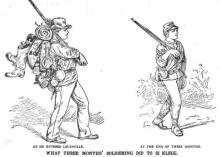 Si Klegg, Book 6
Si Klegg, Book 6 Dave Barry's Book of Bad Songs (Backlist eBook Program)
Dave Barry's Book of Bad Songs (Backlist eBook Program)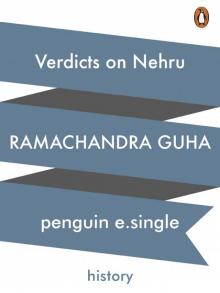 Verdicts on Nehru
Verdicts on Nehru The 2084 Precept
The 2084 Precept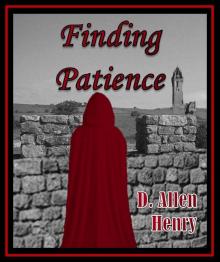 Finding Patience
Finding Patience Amazon Unbound
Amazon Unbound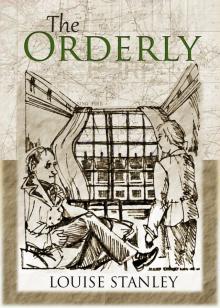 The Orderly
The Orderly